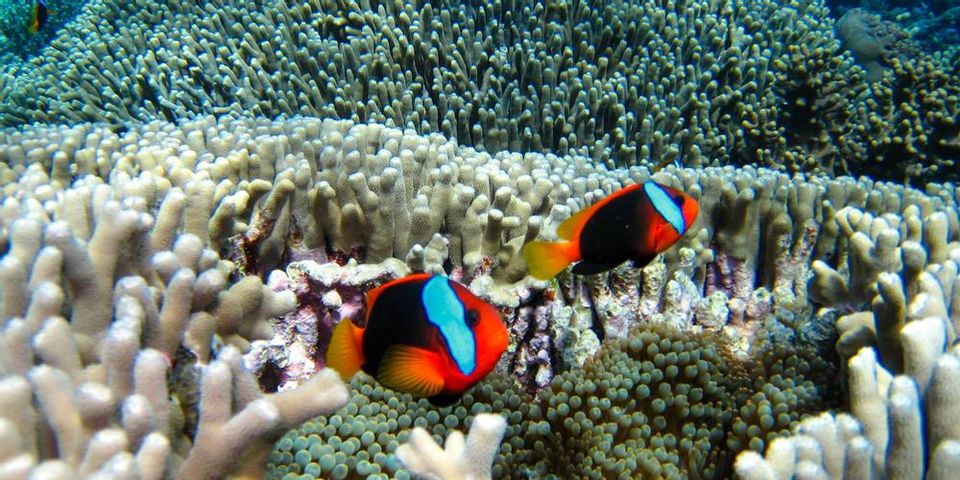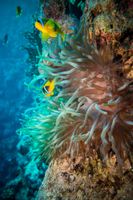
Are you excited to start your new reef tank this summer? Before diving in, there are a few things you need to know. Gerber's Tropical Fish is Cincinnati, OH’s premier saltwater fish and coral expert and provides an ever-changing inventory and education for new aquarium enthusiasts.
When starting your tank, they recommend avoiding the listed items below.
New Reef Tanks: 5 Things to Avoid
1. Adding Livestock Prematurely
Each reef tank has its own natural nitrogen cycle, which causes it to go through biological changes to keep livestock safe and healthy. Your aquarium will need time to adjust before hosting fish and coral. New reefs take a few weeks to stabilize the environment. Without careful attention to this cycle, ammonia and nitrate may cause your new livestock to perish.
2. Having Dirty Hands & Gloves
Since reef tanks are sensitive to the slightest change in lighting, livestock, and water conditions, dirt and bacteria can quickly alter the tank’s environment to the detriment of corals and saltwater fish. Always wash your hands with soap and water before and after maintaining your aquarium. Thoroughly rinse and dry after washing to ensure that tap water is not inadvertently added to the tank. Long sleeved gloves can protect from injury and contamination.
3. Using Tap Water
 Never add tap water to your reef tank. This can cause algae to grow and livestock to die. Many hobbyists use a water dechlorinator before, during, and after setting up their reef to eliminate harmful phosphates, nitrates, and metals. You should also ensure that only RO/DI filtered water is used when starting your aquarium.
Never add tap water to your reef tank. This can cause algae to grow and livestock to die. Many hobbyists use a water dechlorinator before, during, and after setting up their reef to eliminate harmful phosphates, nitrates, and metals. You should also ensure that only RO/DI filtered water is used when starting your aquarium.
4. Overstocking Fish
Once your tank is cycled, it is exciting to add beautiful and vibrant livestock. However, be careful how many you add at once. Too many fish and corals in a new aquarium will cause waste levels to increase sharply, disturbing the new environment.
5. Failing to Provide Light & Circulation
Each reef tank needs the proper water flow and chemistry. Add a filtration system at the beginning to keep corals and sensitive reef fish healthy. The tank should be big enough to add all necessary filter accessories and lighting. Water circulation tools, like pumps and powerheads, will oxygenate the water, allowing livestock to receive nutrients and release waste.
To learn more about starting your new reef tank the right way, call Gerber’s Tropical Fish at (937) 297-0515. For educational guides about fish tanks and aquariums, visit their website.
About the Business
(1,282 reviews)
Have a question? Ask the experts!
Send your question

